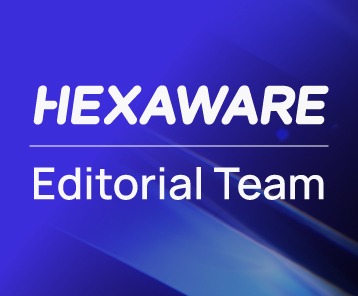Part 4
(This is fourth and final in series of a 4 parts essay Blockchain 101. For previous articles, please click part 1 , part 2 & part 3)
Some Killer Blockchain Apps
Blockchain has tremendous potential in the banking sector and other emerging industries. Let’s take a look at some of the typical banking sector applications:
Land Records 70% of land titles are tenuous in the world. Immutable land records can be created by providing protection to marginalized land-holders like farmers in India.
Colored coins are top-of-stack innovations that exploit a blank field within each Bitcoin, to record unrelated data. An UK-based company Everledger, for instance, initially leveraged Bitcoins to place ‘bling on the Blockchain’ by recording some 40 unique, laser-read identifiers of a diamond, providing proof of provenance and ownership. The Bitcoin was not used to buy the diamond, was just used to create an inviolable record of the transfer of a specific authenticated stone. The same approach could be used to track any valuable asset, with a complex transaction history. *QuHarrison Terry talks about colored coins in his famous *blogpost on Blogchain.
New-age Aggregators Moving from an aggregate economy model to a shared economy model, i.e. moving towards a Blockchain based AirBnB or Uber to create a distributed application, where inventory information is visible to all stakeholders driving prices further down due to lack of an intermediary.
Remittances $600 Bn remittances are sent to home every year, for almost 10% of commission, by intermediaries like Western Union. Apps like Abra are doing it for 2% and in much lesser time.
Digital Profiles Corporations have created digital ‘black box’ profile of users which they sell to advertisers, infringing their privacy of the users. With anonymous and non-central aspects of Blockchain, we can get back control of our digital profiles.
Intellectual Property Blockchain helps in ensuring value for intellectual property like art, scientific discoveries, music etc. For example, Grammy winner songwriter Imogen Heap has put her songs on Mycelia, a Blockchain, where any user can still access music for free, while conserving the value and exclusivity of the Intellectual Property, both at the same time.
Ethereum based applications These applications deploy Smart Contracts that can execute themselves on fulfilment of a scenario. The German company Slock.it has developed an economical Ethereum computer prototype that mediates between smart devices in the home and the Ethereum blockchain. For example, in an AirBnb scenario, the computer negotiates room rental as a smart contract and instructs the smart lock on the front door to open, when the renter arrives. The blockchain holds the deposit in escrow and releases funds on fulfilment of the contract. This disintermediates not only PayPal and the banking system, but also Airbnb.
Supply Chain & Logistics The $40 trillion global supply chain is another inefficient transaction network characterized by slow and error-prone transactions among parties with lack of mutual trust. Some banks are already registering letters of credit on a blockchain so that importers, exporters, and their respective financiers can share common data and release funds without delay or error.
Provenance.org provides an Ethereum-based platform that allows companies to register claims about themselves, their products, and even specific production batches. Paperwork is eliminated and the focus of trust is shifted from intermediaries to the originator of the claim
Digital Fiat Currencies At least, a half-dozen central banks are considering this step. The Bank of England, say, would mint ‘bit£’ as digital bearer instruments. In a recent study, the central bank even concluded that macroeconomic policy would be easier to administer (bit£ could pay a negative interest rate, for example) and that such a regime could permanently raise GDP by as much as 3% by lowering real interest rates, distortionary taxes, and transaction costs. Similarly, RBI in India is also actively researching Blockchain technology to curtail paper currency.
Healthcare Health care is characterized by duplicate, incompatible, and inconsistent medical records, while patient data is subject to stringent security and privacy requirements—a perfect application for a permissioned blockchain.
Digital Identities Governments can play a crucial role by giving their citizens digital identities, thereby enhancing peripheral trust in all peer-to-peer transactions. The most ambitious step in this direction is the AADHAAR national-identity scheme, which has enrolled over a billion citizens in India. Visionaries see an entire *’Índia Stack’ built on this foundation, extending into payments for the unbanked, digital lockers to store information like education & employment records and many more enabling applications
Blocks of Challenges
Along with the future opportunities, Blockchain also brings along its unique set of challenges. Listed below are some of the challenges:
51% attack The possibility of a group controlling majority computing power of the network can thus use their control to impede validation of records by other nodes in the network, profit from double-spending it is supposed to prevent against or monopolize the rewards of mining. Net-net, like in a private company (with no regulatory oversight), if there is an individual or a group with majority share of control, the company might work for the majority shareholder, at the expense of other shareholders, or worse company’s consumers.
Interoperability with Real World Blockchain provides an extremely efficient way of transacting through virtual representation, but when we take conversion costs in and out of real world into account, the proposition is not as much lucrative. For e.g.Bitcoins needs to be converted into a currency or vice-versa
Subjectivity Vs Consensus It is still in its nascent stage, to predict that Blockchain applications can become too big to manage through consensus. Despite its run-away success, the total value of Bitcoin stands at ~$ 16.4 Bn, and it will be interesting to see how the network behaves when the number is 10 or 100 times its current value. Besides, Bitcoins is a straight-forward transaction application and therefore, is much easier to enforce through consensus. Think about an insurance claim which might have multiple variables involved needing a dose of subjectivity to reach the best possible evaluation.
Chaos at the Top The top layer of Architecture, i.e. application and services created by Start-ups are not as robust, raising concerns on the overall ecosystem.
Dark side Criminals are using and abusing Blockchain applications for dark web activities, money laundering, tax evasions, drug trade, terrorist financing and other illegal, which is supported by blockchain’ s anonymity.
In the coming days, notwithstanding the challenges highlighted above, we are yet to see even many more opportunities and associated challenges for this emerging technology. But, what is for certain is that despite all the possible roadblocks ahead, this technology scores hands-down for the most important factor of commerce, i.e.cost barrier to entry. And, therefore, there is significant chance that Blockchain based applications would further evolve and remediate most of the challenges on its way of building a strong business case.
The Future
The Blockchain technology is potentially disruptive to all virtual intermediaries. Its disruptiveness is proportional to the cost, complexity, and degree of transaction duplication, in the current system of intermediation.
Recent technology waves—notably the Internet of Things, the proliferation of smart mobile devices, and augmented reality—directly endow physical objects with information and intelligence: they make the real virtual. The Blockchain technology, conversely, endow data with continuity: they make the virtual real. When the real and the virtual converge, it is as if our world and our map of the world becoming the same thing.
With Blockchain technology, we can witness a truly Globalized world that will self-govern and self-regulate itself beyond the borders we know today, run by a set of competing applications, to give the best services, in every industry possible. It will be second coming of globalization, and the one where Hexaware can be your partner of choice, like for many of our customers today, to design and execute your Blockchain strategy.
For more information, please write to us at marketing@hexaware.com.
Sources
- TED Talk by Don Tapscott: How the blockchain is changing money and business
- BCG blog: A Strategic Perspective on Blockchain and Digital Tokens
- BCG blog: Seven Possible Killer Apps for Blockchain And Digital Tokens
- BCG blog: HOW BITCOIN WORKS
- Investopedia term definition: 51% Attack
- Bitcoincharts
- Wiki: Blockchain
- Indiastack



















